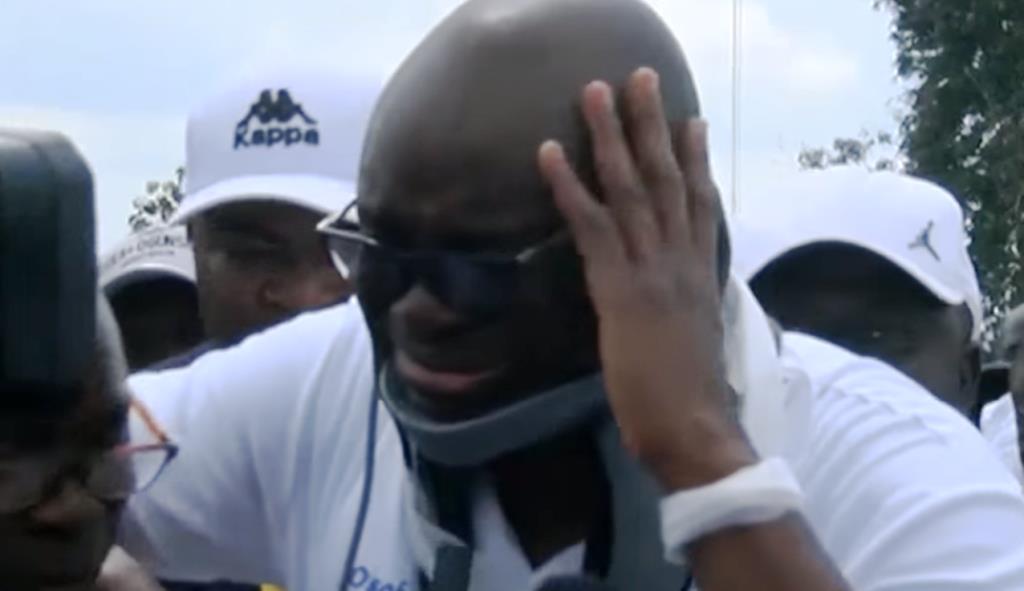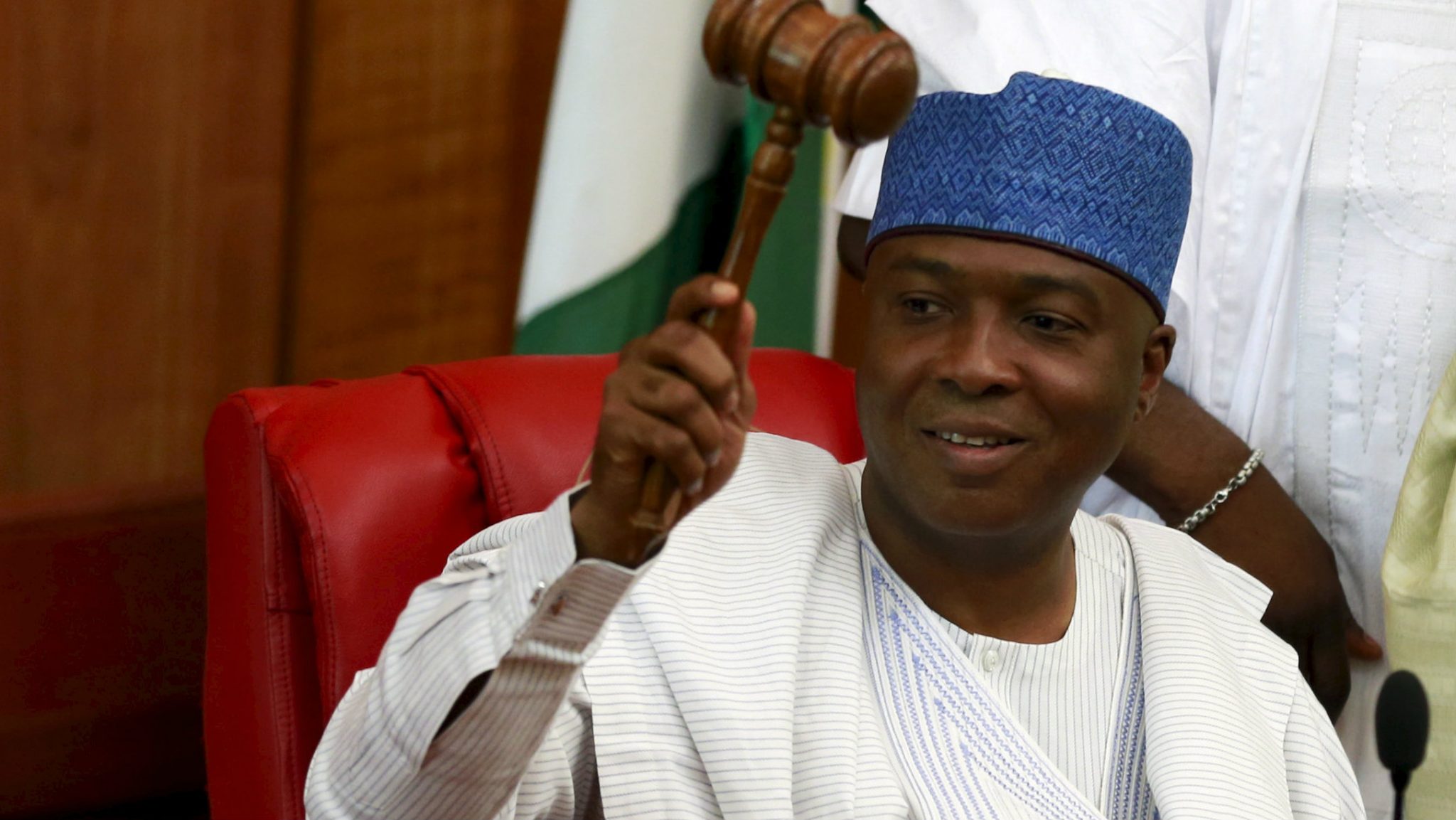Indications emerged on Tuesday that the Economic and Financial Crimes Commission (EFCC) has set up a special team to interrogate Governor Ayodele Fayose of Ekiti State next week.
Recall that Fayose, who has been governor since October 16, 2014, will lose his immunity at exactly 11.59pm on October 15, 2018, thereby giving the EFCC the constitutional right to arrest, detain and prosecute him.
The governor is expected to report at the EFCC head office in Abuja to meet with the commission’s Director of Operations, Umar Mohammed, after which he will be grilled by a team of operatives.
Fayose is under investigation for allegedly receiving over N1.2bn from a former National Security Adviser, Col. Sambo Dasuki (retd.), through a former Minister of State for Defence, Senator Musiliu Obanikoro.
The money was allegedly handed over to Fayose during the build-up to the 2014 governorship election in Ekiti State.
Fayose’s aide, Abiodun Agbele, and others had been arraigned by the EFCC but Fayose was excluded because of his immunity.
A source within the EFCC said, “We are expecting Fayose to show up at our office next week. He has nowhere to run to since he is under security watch and cannot leave the country through any land border, seaport or airport.
“We have also set up a special team of investigators that will interrogate him immediately after the expiration of his tenure.”
The governor is expected to be arraigned after investigations.
Apart from the alleged N1.2bn fraud, Fayose is also under probe for alleged contract fraud.
Speaking with one of our correspondents on Tuesday, a spokesman for Fayose, Mr. Idowu Adelusi, said his principal was ready for the EFCC.
Adelusi noted that the governor had written a letter to the EFCC indicating his readiness to appear before the commission next week.
He said, “Governor Fayose is an honourable man. He will not run away. He has already stated that he will make himself available next Monday once his tenure expires. He made this clear in a letter recently. Even when he was not under immunity, the governor honoured the EFCC invitations.
“The EFCC is not a court of law and cannot declare a person guilty. The governor will be available next week, no doubt.”
Meanwhile, Fayose has filed a N20bn suit against the EFCC for placing him on watch list and directing security agencies to arrest him, if he attempts to travel out of the country.
He said the directive against him despite being a sitting governor breached his constitutional immunity and exposed him to public opium and ridicule.
Fayose had in a September 3, 2018 letter by his counsel, Obafemi Adewale, given the EFCC 72 hours to withdraw the request/directive to security agencies and publish a written apology in three national newspapers and the social media.
A statement issued on Tuesday by his Special Assistant on Public Communications and New Media, Lere Olayinka, said the suit was consequent upon the EFCC’s failure to accede to his demands as contained in the letter.
Recall that EFCC had tweeted on July 16, 2018 through its official twitter handle @officialEFCC concerning Governor Fayose that, “The parri (party) is over, the cloak of immunity is torn apart and the staff broken, Ekiti Integrated Poultry/Biological Concepts Limited N1.3bn fraud case file dusted off the shelves. See you soon.”
In the suit, Fayose demanded among other things; an order of the court mandating the EFCC to pay the sum of N20bn as general damages to what he called “flagrant, deliberate, pre-meditated and reckless libel and unprovoked attack on his character and reputation and the breach of his constitutional right/immunity as an incumbent governor.”
He asked the EFCC to tender a written apology, which should be circulated to all security agencies in Nigeria and that same should be published in at least three widely read national newspapers and the social media.
The governor also sought a declaration that the statements contained in the EFCC’s letter of September 12, 2018, and addressed to all security agencies n Nigeria portrayed him as a criminal, a fugitive and a run-away from the law, and that the statements were not true, were malicious, and not fair.
He asked the court to further declare “that the EFCC’s letter placing him on watch list and directing his arrest on sight even while a sitting governor is unconstitutional as same offends the clear provision of Section 308 of the 1999 Constitution of the Federal Republic of Nigeria (as amended) which clothes him with immunity against arrest and prosecution as an incumbent governor.”
“That the tweet by the defendant (the EFCC) through its official twitter handle, which was widely circulated through social media and published in Punch Newspaper (online) of 16th July, 2018, with the particular wordings pleaded in the statement of claim filed along with this Writ is not true, is malicious, is not a fair statement and presents the plaintiff as a fraudster thereby ridiculing him and reducing him in the eyes of reasonable and right-thinking members of the society.”

